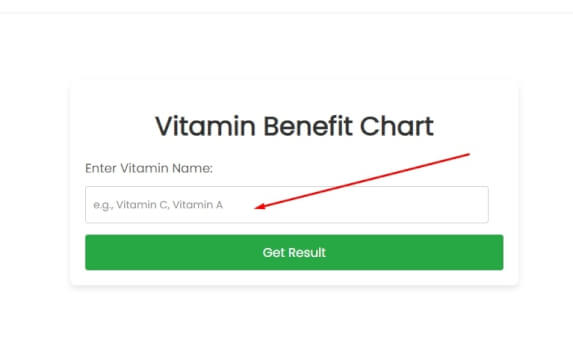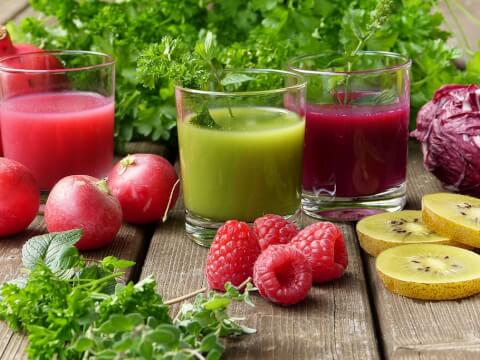Vitamin Benefit Chart
Foods & Benefits
Every man need vitamin benefit chart. So I create vitamin benefit chart tools. Vitamins are extremely useful in keeping a person healthy and fit. These are really helpful nutrients that carry out many of the critical functions of the body-from boosting immunity to energizing individuals. A well-structured Vitamin Benefit chart may serve as an effective resource in portraying the importance of each vitamin and their food sources along with the health benefits they provide. In this article, we will provide an in-depth guide describing the most important vita
What is a Vitamin Benefit Chart?
A Vitamin Benefit Chart depicts all vitamins, their specific functions, and the natural foods in which they are found. An example is a quick reference guide to an individual’s diet and health schemes. What are the merits of the vitamin? That every person should know to make lifestyle choices healthier. Vitamins are classified into two broad categories. The Water Soluble Vitamins: It means they dissolve in water and are not stored in the body. All the B-complex vitamins and Vitamin C fall under this category. For example, Fat-soluble vitamins. They dissolve in fat and get stored in the body’s tissues. A, D, E, and K are given as examples in this category. This guide will cover both water-soluble and fat-soluble vitamins, their functions, food sources, and health benefits.
Vitamin Benefit Chart
| Vitamin | Function | Food Sources | Health Benefits |
|---|---|---|---|
| Vitamin A | Supports vision, skin health, and immunity | Carrots, sweet potatoes, spinach, liver | Promotes healthy eyesight and skin, boosts immunity |
| Vitamin B1 (Thiamine) | Helps convert food into energy | Whole grains, nuts, pork, legumes | Supports energy metabolism, brain function |
| Vitamin B2 (Riboflavin) | Aids energy production and cellular function | Milk, eggs, green vegetables, almonds | Enhances energy production and skin health |
| Vitamin B3 (Niacin) | Supports digestion, skin, and nervous system | Chicken, fish, peanuts, mushrooms | Improves digestion, lowers cholesterol levels |
Listing of vitamins
| Vitamin B5 (Pantothenic Acid) | Assists in hormone production and metabolism | Meat, avocados, yogurt, mushrooms | Helps produce hormones and boosts energy levels |
| Vitamin B6 (Pyridoxine) | Regulates mood, energy, and red blood cell production | Bananas, potatoes, poultry, fish | Improves mood, supports brain and heart health |
| Vitamin B7 (Biotin) | Promotes healthy hair, skin, and nails | Eggs, nuts, seeds, sweet potatoes | Enhances hair, skin, and nail strength |
| Vitamin B9 (Folate) | Supports DNA production and fetal development | Leafy greens, beans, citrus fruits | Essential for pregnant women, supports cell growth |
| Vitamin B12 | Maintains nerve function and red blood cells | Fish, meat, dairy products, eggs | Prevents anemia, boosts energy, improves memory |
Benefits of Essential Vitamins
- Vitamin A: Vitamin A is necessary for good vision, especially in low light, besides keeping skin primed and ready for cell production and repair. Besides being beneficial for the skin, Vitamin A is important in boosting the immune system, making the body resistant to infection.
- Vitamins B: vitamins comprise B1 (thiamine), B2 (riboflavin), B3 (niacin), B5 (pantothenic acid), B6 (pyridoxine), B7 (biotin), B9 (folate), and B12 (cobalamin). Each of these vitamins has its distinct contribution, but they all unify to help in energy production, brain functions, and cellular health.
- Vitamin C: Vitamin C is an antioxidant that enhances the immunity of an individual who takes it and bets on its possibility to augment the collagen produced by the body. It is a vitamin required in the growth and repair of tissues in the body; thus, one can say this vitamin is needed for skin and wound healing.
- Vitamin D: Vitamin D is known as the sunshine vitamin because it makes vitamin D in the body with exposure to sunlight. It is also crucial in absorbing calcium in the body and, thus, in bone health. It also works effectively in improving one’s mood and enhancing immunity.
- Vitamin E: Vitamin E is one of the most potent antioxidants, bester when viewed within the context of the organism against oxidative stress that can cause cell damage. The antioxidant also heals tissue, stimulates immunity, and keeps the skin healthy.
- Vitamin K: Vitamin K is a very important vitamin for blood coagulation and bone density upkeep. The vitamin guarantees the proper repairing of wounds while reducing bone fractures.
| Vitamin C | Strengthens immunity and promotes healing | Citrus fruits, strawberries, broccoli | Boosts immune system, promotes collagen production |
| Vitamin D | Enhances calcium absorption for bone health | Sunlight, fatty fish, fortified milk | Strengthens bones, improves mood, supports immunity |
| Vitamin E | Acts as an antioxidant, protecting cells | Nuts, seeds, spinach, vegetable oils | Protects cells from damage, boosts skin health |
| Vitamin K | Aids blood clotting and bone health | Kale, spinach, broccoli, parsley | Promotes proper blood clotting, strengthens bones |

How to Use a Vitamin Benefit Chart
- Identify nutrient deficiencies: Do you feel fatigued, are you losing hair, and do you have weak immunity? Check the chart to see if these symptoms can be linked with a vitamin in the deficiency chart.
- Plan for well-balanced meals: Include various vitamin-rich foods in your daily diet with the help of this chart.
- Monitor the health goal: If a person wishes serene skin, sturdier bones, or improved energy, the chart shall lead him to the nutrients relative to his goal.
- Monitor Nutrient Intake: This makes use of the chart to guarantee that one is taking in the recommended dose of all essential vitamins.
Conclusion: A Vitamin Benefit Chart will be useful to anyone who is geared to healthy living through nutrition. Knowledge of exact functions, sources from foods, and usefulness of vitamins gives the individual savvy on diet. Vitamins are pivotal not only in energy production, but immunity, bone health, and wellness at large. Make vitamin rich foods a part of your daily meal and you will be on your way to a healthier lifestyle. Creating a balanced meal, finding nutrient gap fillers, and supporting wholeness will start with this guide. If you want more health tools, Please click here.


Table of Contents
Toggle